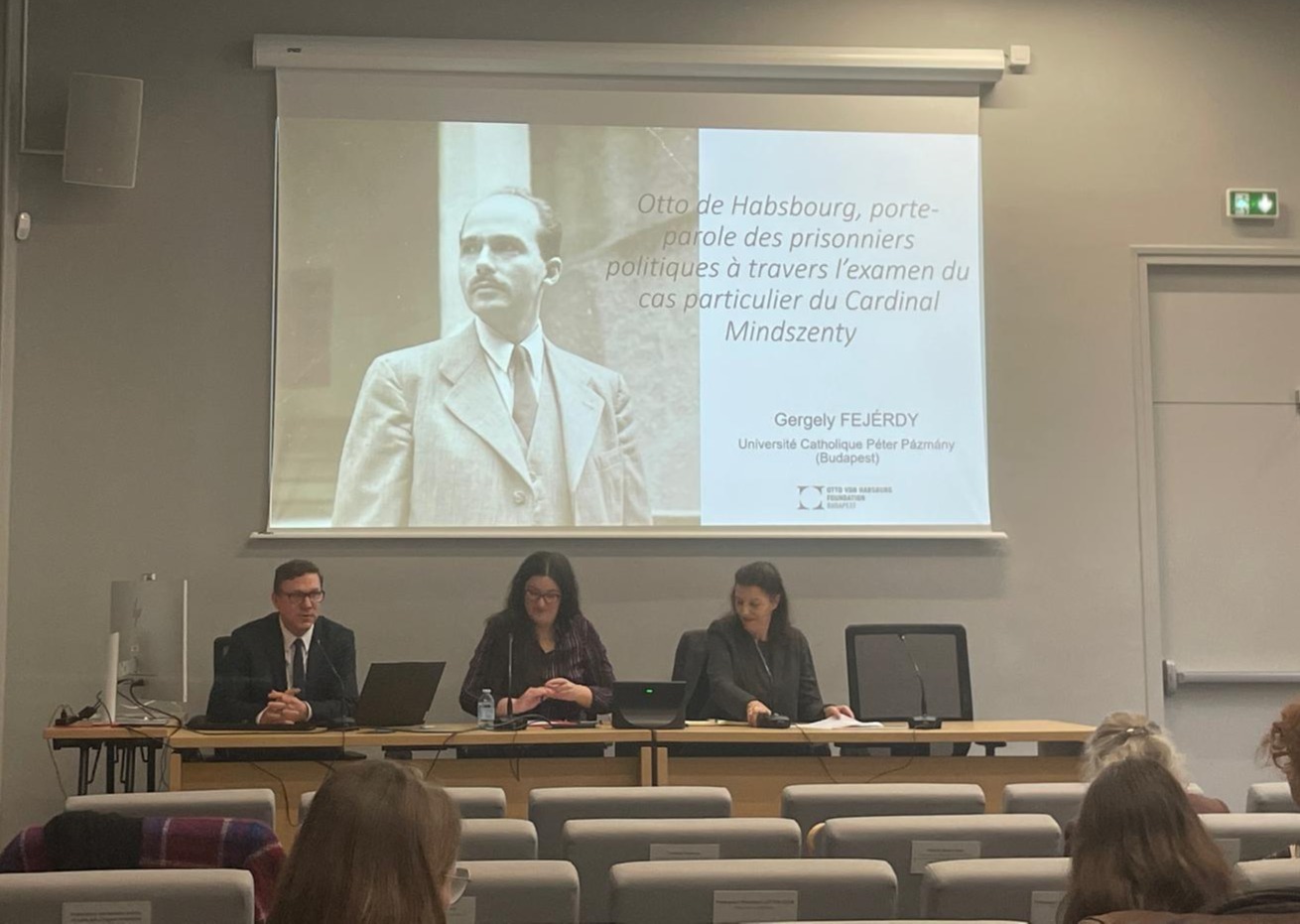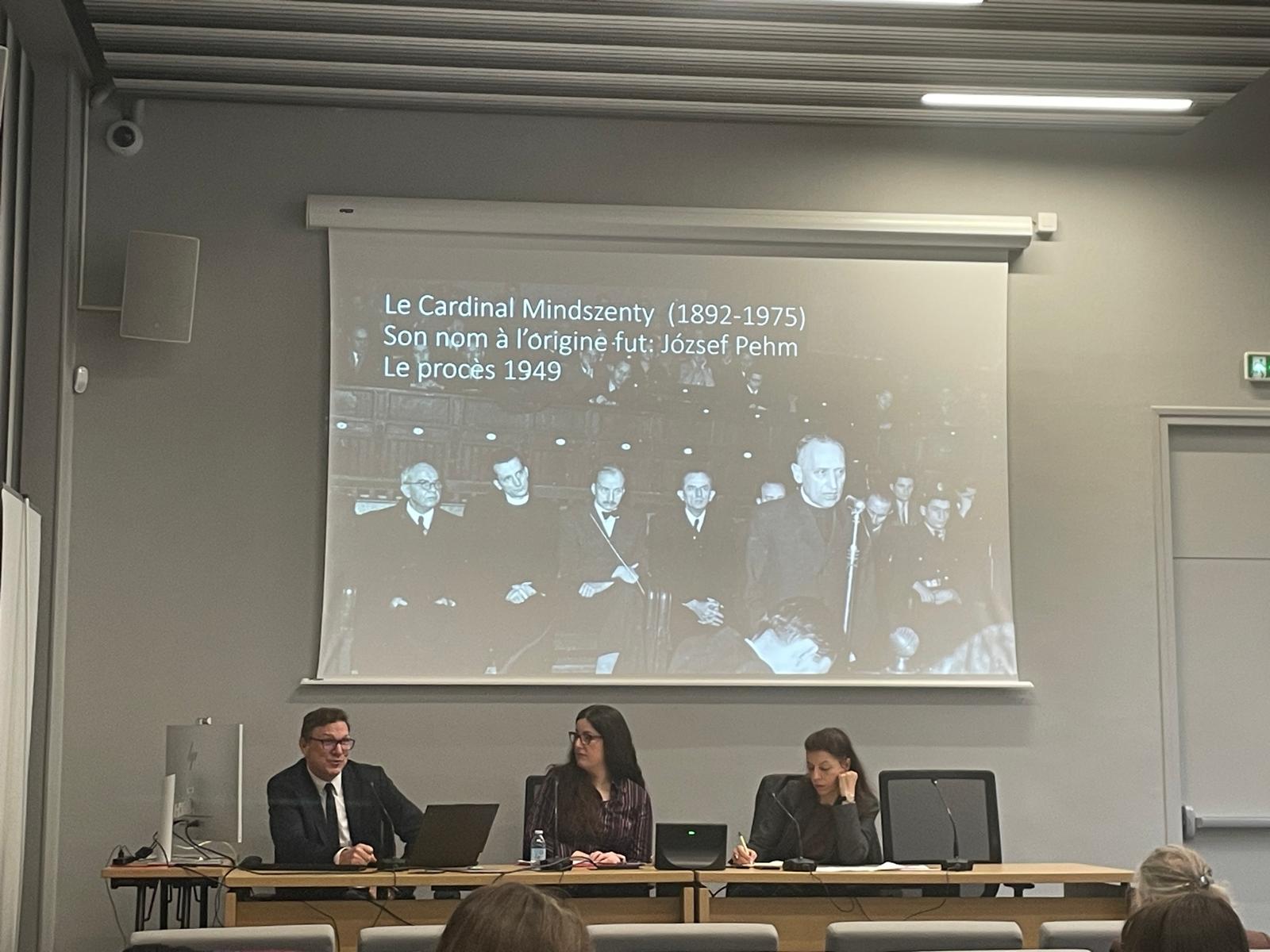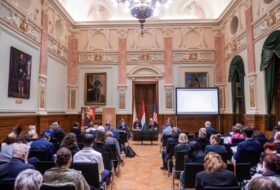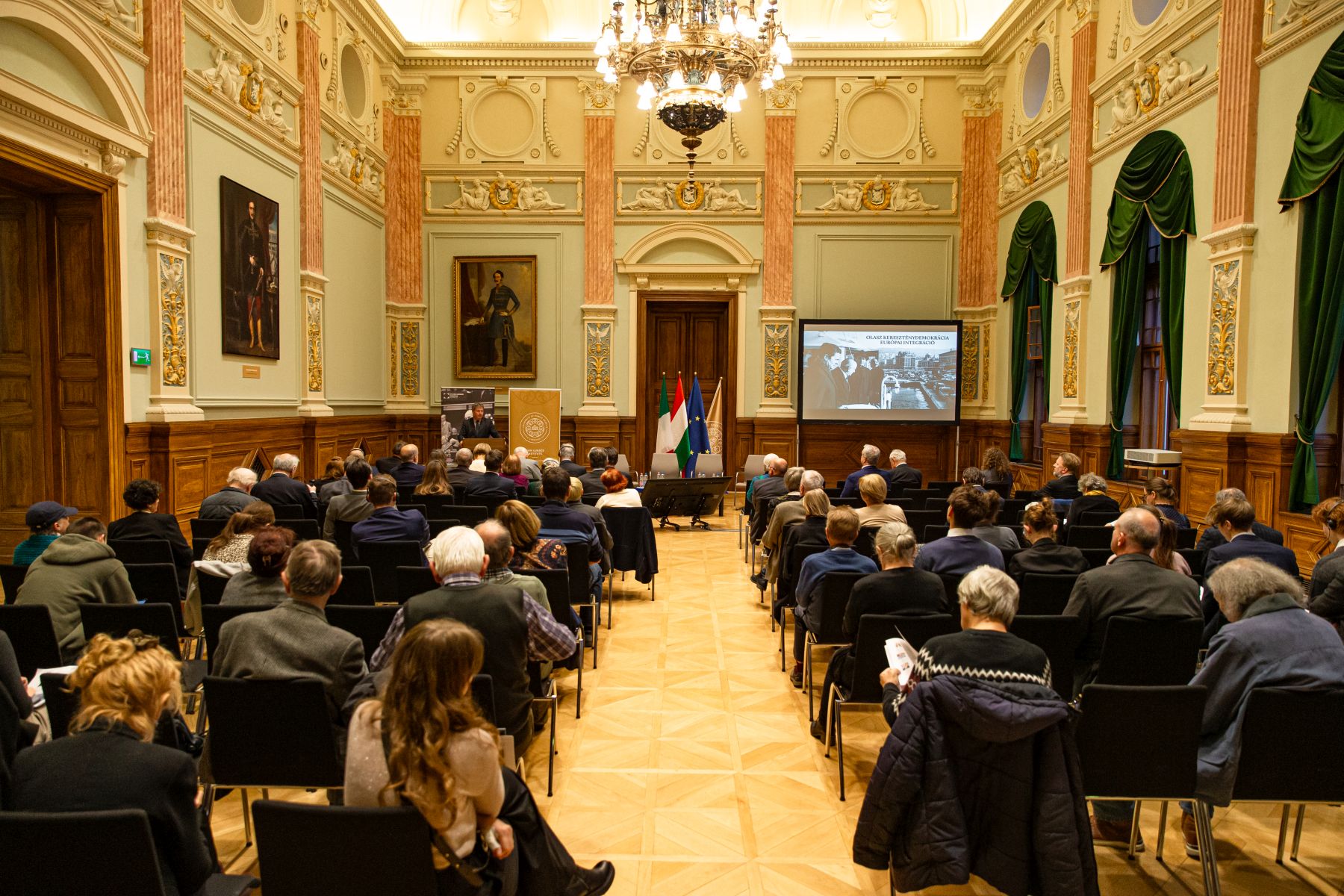The Institut national des langues et civilisations orientales (INALCO – National Institute for Oriental Languages and Civilisations), in collaboration with La Société française d’histoire politique (SFHPo – French Society for Political History) and Sorbonne Nouvelle (Paris 3), convened an international symposium entitled Political Prisoners in Central, Eastern, and Balkan Europe (20th–21st Century). Held on 6–7 November 2025, the event explored the treatment of political detainees from the First World War to the present, analysing the profiles of the incarcerated, the functioning of enforcement agencies, and the political regimes that employed repression and intimidation as instruments of governance, including Nazism and Communism.
Gergely Fejérdy delivered a lecture on our Foundation’s namesake, who may also be regarded as a staunch advocate for those imprisoned under twentieth-century totalitarian systems. Drawing upon the example of Cardinal József Mindszenty, who passed away fifty years ago, he highlighted that the former Austro-Hungarian Crown Prince maintained a persistent and unwavering concern for the plight of political prisoners, endeavouring to alert both public opinion and policymakers to their intolerable circumstances. His engagement extended not only through the Cold War but also as far back as the 1930s. Otto von Habsburg systematically gathered information concerning those imprisoned or confined in internment camps, disseminating it through multiple channels to awaken the conscience of the free Western world.
The meeting provided an occasion to strengthen the Foundation’s professional network. Our Deputy Scientific Director, historian Catherine Horel, President of the International Committee of Historical Sciences, held consultations during the symposium. Professor Horel indicated her intention to visit Budapest in March 2026, where she would be pleased to deliver a lecture. The discussion also addressed the potential guidance of French doctoral students interested in Otto von Habsburg’s heritage. Further exchanges explored avenues for future collaborations with other historians and political scientists.
Additionally, Gergely Fejérdy met with Professor Isabelle Davion and political scientist Florent Parmentier, who were previously guests of our Foundation. Parmentier serves as a faculty member at SciencesPo and Secretary-General of the CEVIPOF research network. During the symposium, Blandine Montembault, a master’s student at Paris 4 Sorbonne University, approached our colleague upon the recommendation of the Habsburg family, seeking guidance for her thesis and prospective doctoral dissertation on the former Crown Prince.
The Paris gathering also facilitated the engagement of additional figures from French academic and public life with the Foundation. Gergely Fejérdy met François-Xavier Bellamy, French Member of the European Parliament, who expressed sustained interest in Otto von Habsburg’s oeuvre and indicated his willingness to participate in one of the Foundation’s forthcoming Hungarian events, should circumstances permit.
Our participation in this international forum further consolidated the Otto von Habsburg Foundation’s scholarly reputation while laying the groundwork for future collaborations and professional exchanges.



